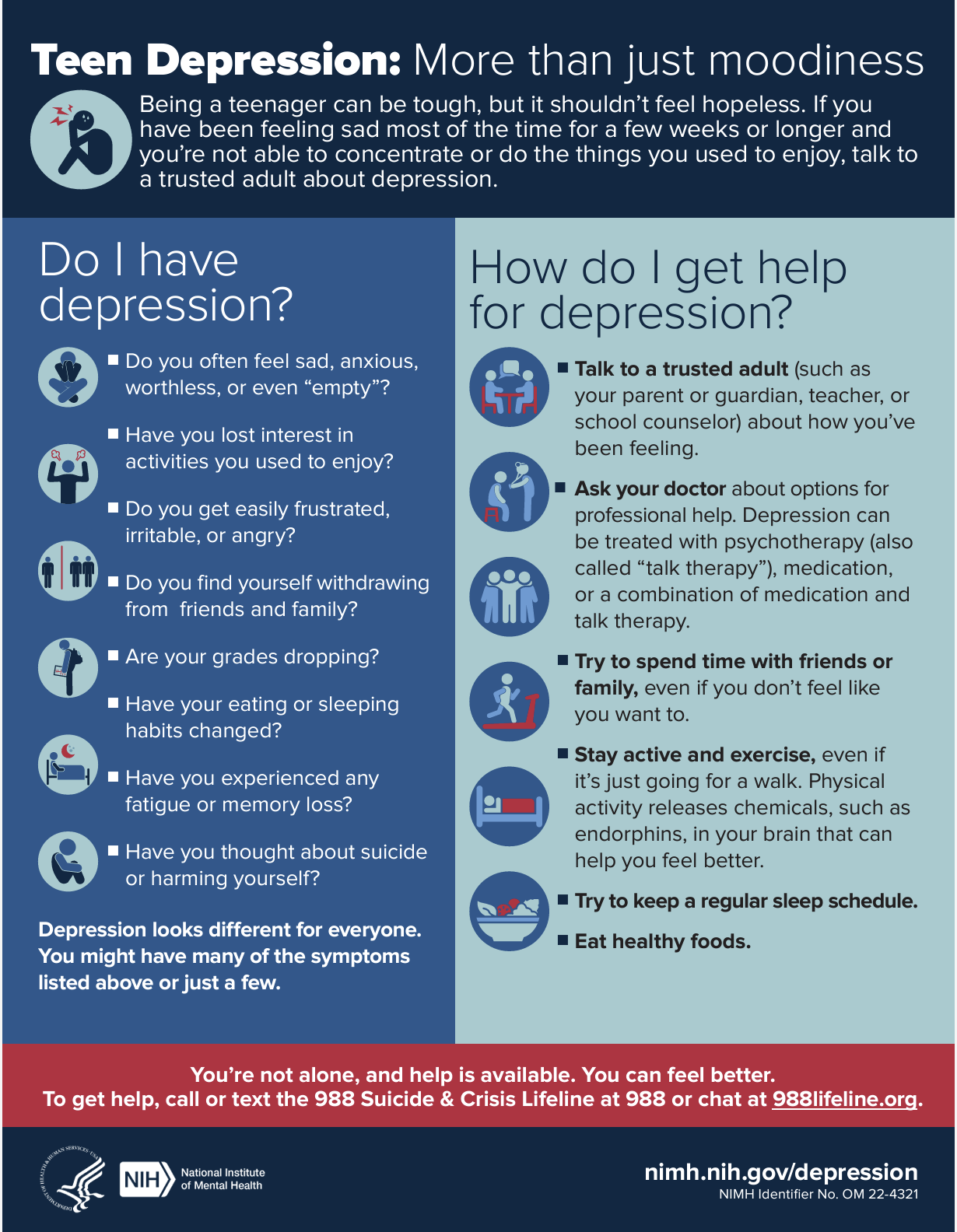
Being a teenager can be tough, but it shouldn’t feel hopeless. If you have been feeling sad most of the time for a few weeks or longer and you’re not able to concentrate or do the things you used to enjoy, talk to a trusted adult about depression.
The fact sheet below can give you some insight into what you are feeling and the steps you can take to get help.

Depression looks different for everyone. You might have many of the symptoms listed above or just a few.
Do I have depression?
- Do you often feel sad, anxious, worthless, or even “empty”?
- Have you lost interest in activities you used to enjoy?
- Do you get easily frustrated, irritable, or angry?
- Do you find yourself withdrawing from friends and family?
- Are your grades dropping?
- Have your eating or sleeping habits changed?
- Have you experienced any fatigue or memory loss?
- Have you thought about suicide or harming yourself?
How do I get help for depression?
You’re not alone, and help is available. You can feel better. To get help:
- Talk to a trusted adult (such as your parent or guardian, teacher, or school counselor) about how you’ve been feeling.
- Ask your doctor about options for professional help. Depression can be treated with psychotherapy (also called “talk therapy”), medication, or a combination of medication and talk therapy.
- Try to spend time with friends or family, even if you don’t feel like you want to.
- Stay active and exercise, even if it’s just going for a walk. Physical activity releases chemicals, such as endorphins, in your brain that can help you feel better.
- Try to keep a regular sleep schedule.
- Eat healthy foods.

If a friend tells you they’re fine, that might be the end of the story. They’re good! Nothing new to report! They’re truly ok. But sometimes the response can signal that the person you’re talking to needs help or support. Check out this article to learn how to interpret what the person really means and how you can help.
Download a PDF of this fact sheet. A Spanish-language version is also available.
You’re not alone, and help is available. You can feel better. To get help, call or text the 988 Suicide & Crisis Lifeline at 988 or chat at 988lifeline.org
Source: National Institute of Mental Health | Teen Depression: More Than Just Moodiness, https://www.nimh.nih.gov/health/publications/teen-depression | Public domain. Last reviewed October 2024.






